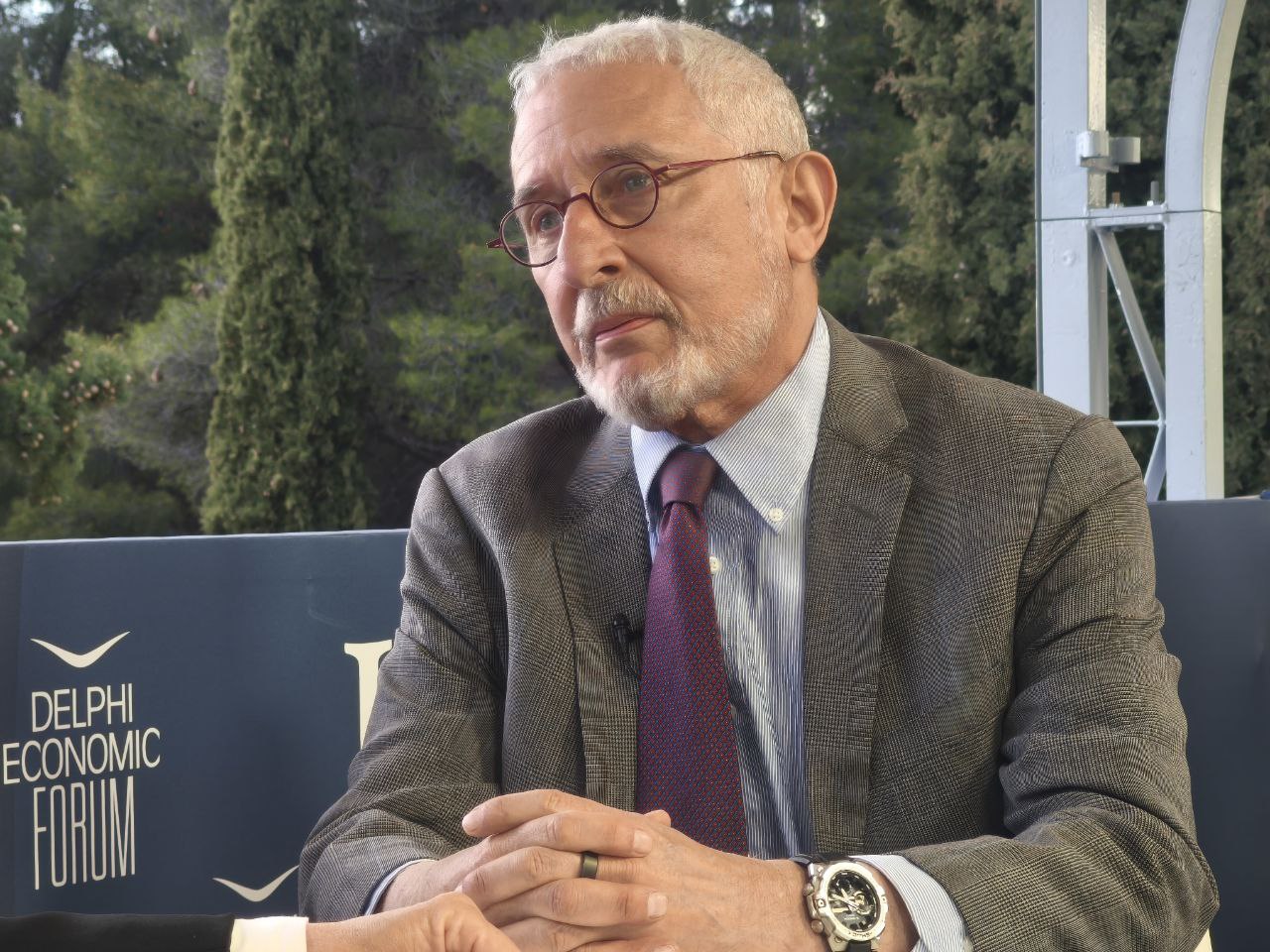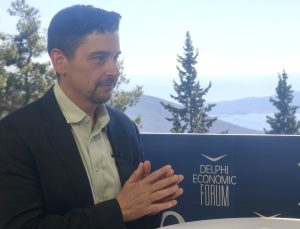Daniel Seidemann from the Jerusalem Peace Institute and an expert on the Israeli-Palestinian conflict said a two-state solution was urgent, speaking to Chief Editor of TO BHMA International Edition (tovima.com) Odin Linardatou at the Delphi Economic Forum X
about the bloody conflict in the region.
Seidemann warned that perpetual occupation poses an existential threat to both Israelis and Palestinians, predicting that Israel would either end the occupation or the occupation would end Israel.
According to Seidemann, the real choice is not between one state or two but between a two-state solution and the complete absence of any solution. The alternative is a reality of perpetual conflict and an Israel increasingly resembling an apartheid state.
He identified two primary obstacles to implementing a two-state solution. The first is the presence of Israeli settlements in the occupied Palestinian territories. In the context of a negotiated agreement, those living in these areas would need to be part of a mutually acceptable arrangement.
The second major obstacle is the deep collective trauma on both sides. As he explained, Palestinians struggle to understand the pain caused to Israelis by the October 7 attacks, while Israelis fail to grasp the scale of devastation inflicted on Palestinians by Israel’s policies. Seidemann criticized the international community for its inability to enforce accountability on both parties.
On the subject of Hamas, Seidemann underlined that Israel views it not as a negotiating partner but as a problem to be resolved. He claimed that the idea of fully eliminating Hamas has been used as a political cover by Prime Minister Netanyahu, who had previously allowed Qatari funds to flow to the group in the hope that it would serve his political interests, considering Hamas easier to manage than moderate Palestinian voices. This strategy, he said, has failed, and Netanyahu has yet to learn from its consequences.
Seidemann noted that a majority of Israelis want the Israeli-Palestinian conflict to end. However, Netanyahu continues his military strategy because he knows that once the conflict is over, his grip on power will be in jeopardy. Increasingly, Israeli citizens are realizing that the government is acting solely in its own interest.
For the first time, he observed, segments of Israeli society are beginning to recognize the scale of the war crimes committed in Palestine. At the core of the conflict’s perpetuation lies the dehumanization of Palestinians—the entrenched belief that their lives matter less.
Finally, Seidemann expressed concern over the rise of religious extremists in Israel, who threaten the cultural and religious diversity of Jerusalem—a city of global significance and sacred to Judaism, Christianity, and Islam.



